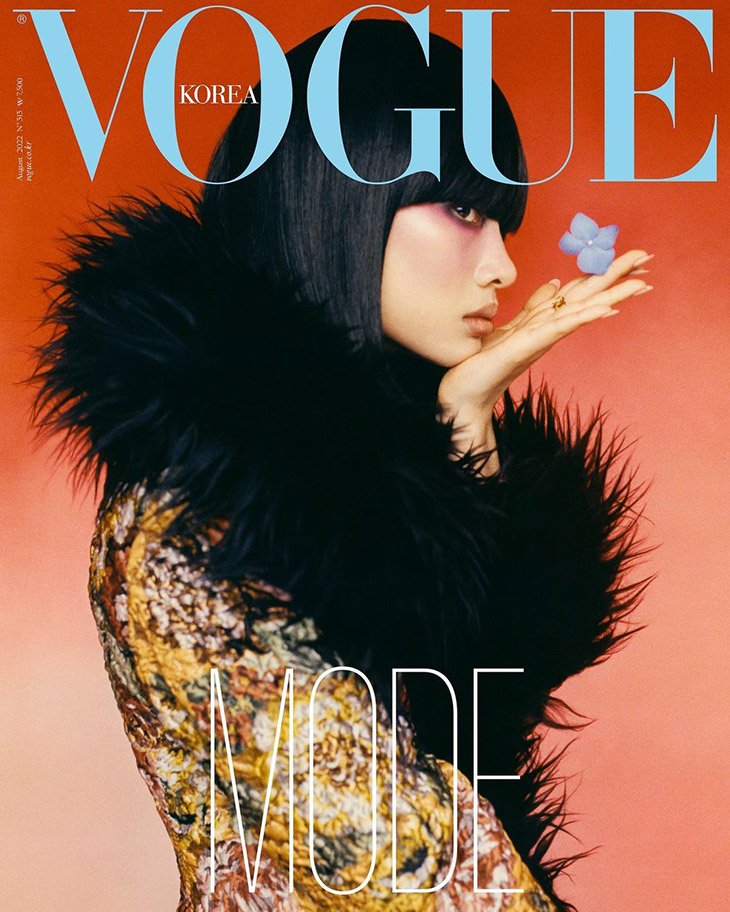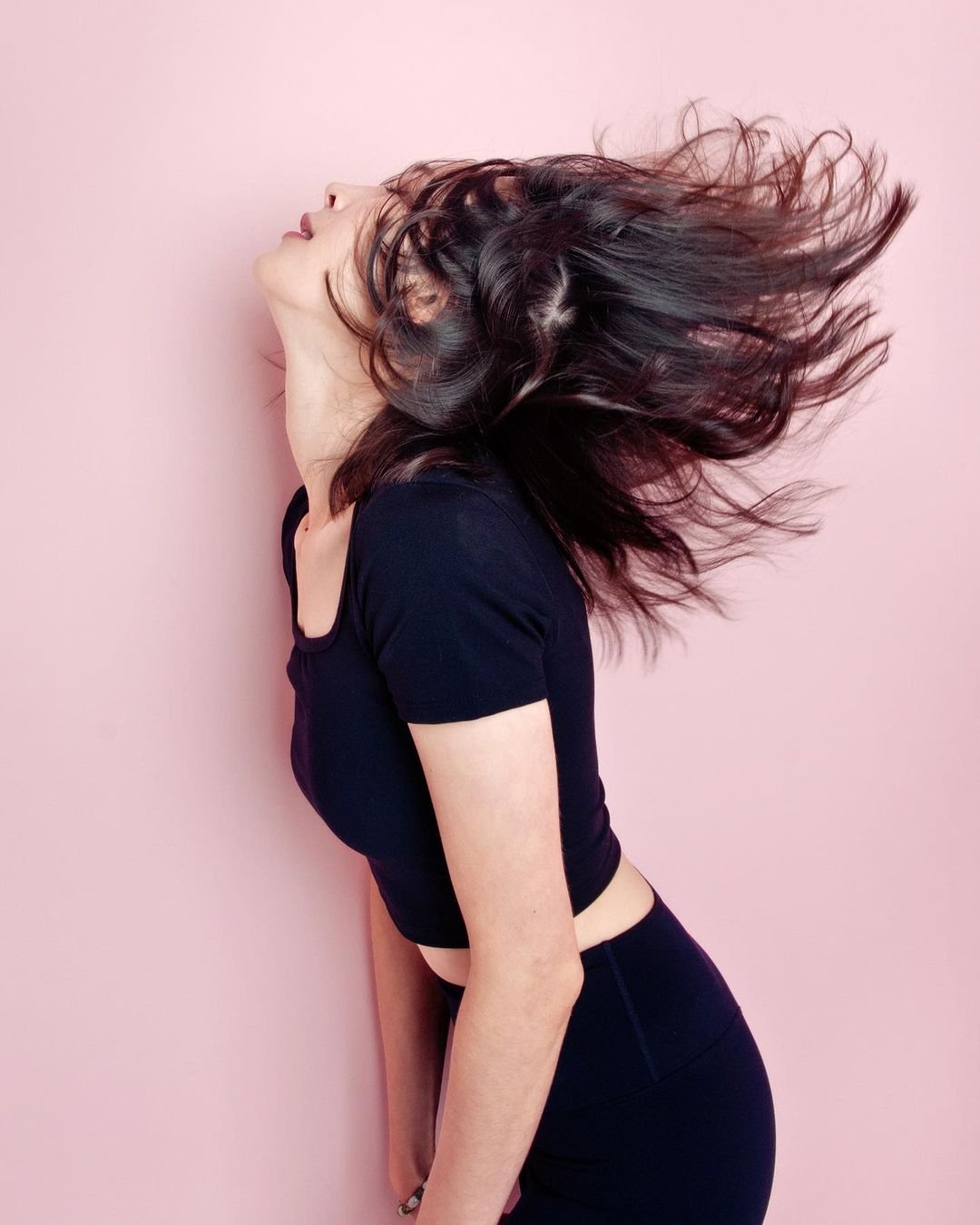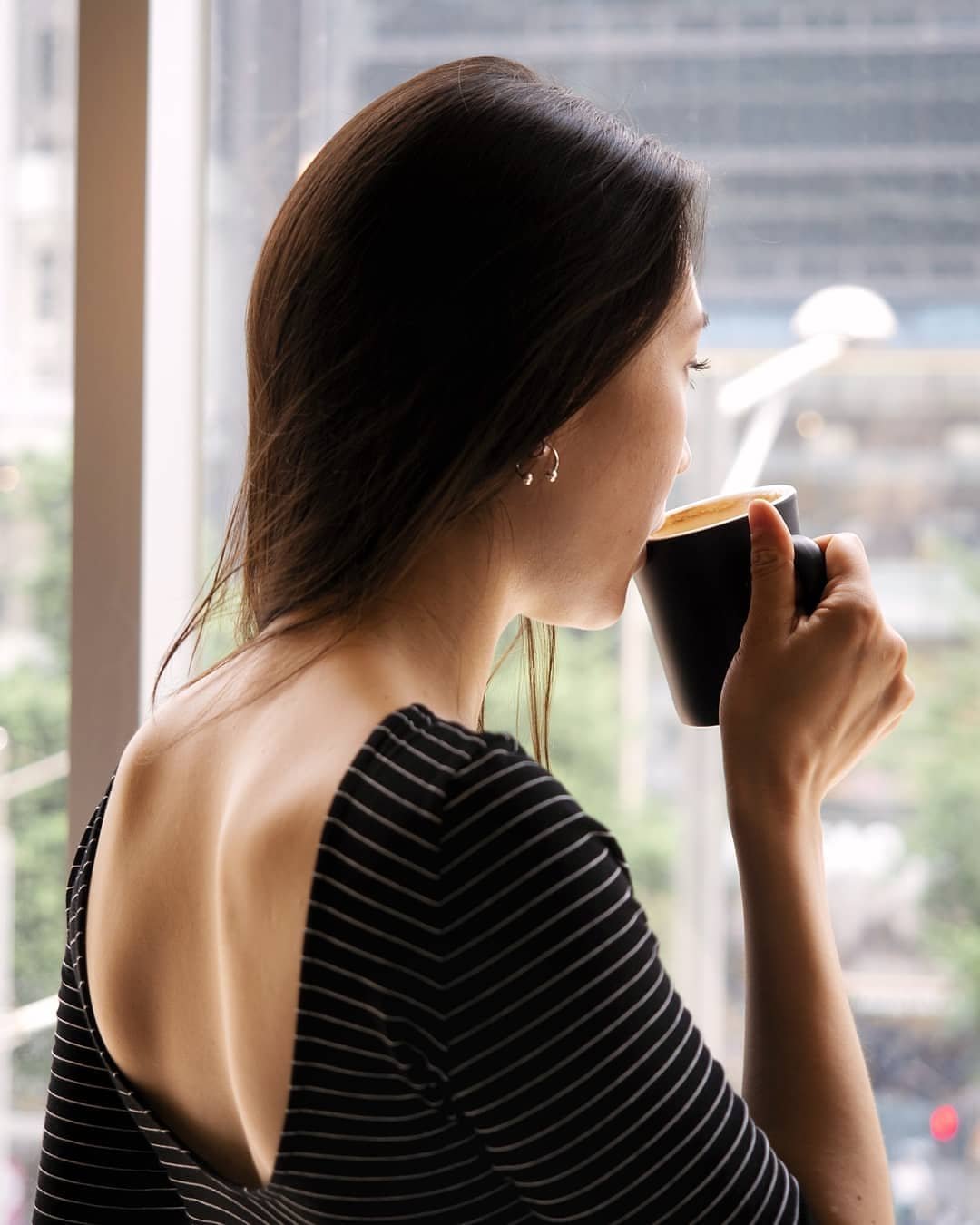So you have 'bad' hair, too?
“머리가 너무 얇네!”
“머리숱이 너무 없어요”
“애기 머리 같다!”
“Your hair is so thin!
You don't have much hair.
It's so fine, like baby hair.”
I've heard it all. Working as an on-camera talent, I've encountered hundreds of hair stylists who all hold their own opinions about my hair, depending on -
A. what they think is 'normal' hair and
B. how comfortable they are with my type of hair.
For years, I believed that my hair was the worst. Fine, straight, soft and stubbornly not curly when twisted about by a flatiron (which is nearly how all Korean hair-stylists curl my hair.) Because my hair was unmanageable according to Korean hair-styling techniques, it was my problem. I never once considered that perhaps... it just was different from nearly all of the Korean hair population.
The muttering and annoyed huffs while brushing back yet another unruly strand, the overuse of wax to keep everything in place, resulting in a greasy head that looked like a bucket of water had been poured over it, the louder and louder clamping of flat iron onto my increasingly frizzled hair… it's a nightmare I hope to avoid one day by become amazingly rich and having a personal stylist (one can dream, right?)
The makeup chair has long been my least favorite part of the job. I always find myself getting tense as I settle in front of the lights and surreptitiously watch the stylist’s reflection in the mirror as she glances over my hair and skin. I wait to see the eyebrow furrow and the inevitable pursed lips. Sometimes I'll beat her to the punch and say, "I know, I know, my hair is so fine" and laugh it off, because if I say it, then maybe it hurts less, right?
I trained in the fashion industry in Korea - not in the foreign model circuit but at one of the top agencies in Korea, surrounded by girls who end up becoming Korean Vogue cover models. The entrance to acceptance is narrow here, far narrower than anywhere else.
This is where we make the intense beauty standards that the ordinary Korean girl is held against. There are particular measurements and features. Exact proportions, skin tone, smile, shoe size, forehead width, weight, and of course, hair.
I believed my hair was just wrong, because all of the models around me had one type of hair - that thick, straight, Korean type.




I once had a stylist give up and tell her assistant to just pull it into a bun because she couldn’t be bothered. I’ve often ended up with a tangled helmet of hair due to desperately flat-ironed hair being aggressively back-combed because my "hair needs volume.”
“수고하셨습니다” I say, smiling. If there’s time, I slip away to a bathroom on set somewhere and gingerly reshape my hair into something less bird nest-like.
This hair sensitivity began long before I started modeling in Korea. My mother took me to Korean hair salons in the U.S. when I was younger. Every salon seemed to have at least four resident ahjummas, all with pencil-thin, blue eyebrows and tightly permed hair, and a stack of beauty magazines at least ten years too old.
But middle school me never knew the difference as I flipped through the pages, staring at the photos of the Korean models and their heavy bangs.




“What you want?” The ahjumma said, as I settled into the chair and let her wrap the cape around my neck.
I pulled the magazine out from beneath the cape and pointed at my picture of choice. The model had fluffy bangs and choppy layers that framed her heart-shaped face.
The ahjumma looked at me and shook her head.
“You just trust me, okay?” she said, already spraying my hair with water and snipping away. I watched my cut strands fall into the cape and gather in my lap.
I remember my mom once examining my whole face and sighing. “Becky is perfect,” she said, “except for hair.”
Those old feelings of disappointment follow me still, especially when I look at magazines and now I see the girls that I personally know and trained with, instead of models from an era before. The girls on the pages might change, but the feelings towards my hair don’t.
But my first moment of realization happened one early morning on set as I took my seat in the makeup chair. The hair stylist ran her fingers through my hair, and when I noticed that she said nothing before getting to work, I offered an apologetic smile and my usual refrain of "it's not easy to work with, I know.”
To my surprise, she shook her head and said, "you have unusual hair. It's fine like 외국인 머리 (foreigner hair), but feels like Korean hair. You’re 혼혈 (mixed Korean), right?”
As silly as it sounds now, it completely shook me to my core to hear her say that, and so casually, too.
"Nobody ever knows what to do with it," I said.
Brushing my hair carefully, she replied, "because we don't see hair like this often.”
Cue the thunder bolt.
Since working in the U.S. I've encountered many different types of hair stylists. And frankly, not all do a great job with my hair (I think that’s less of a systematic approach to one type of hair than the individual hairstylist’s skill level), but I’ve noticed that nobody points out how different, how difficult, how (insert negative characteristic) it is - and I can thank the diversity of models and hair types that exist there. In particular, the Black women who have grappled with conversations about ‘good hair’ and ‘bad hair’ in the U.S. for a long time.
I also think that meeting Cedric was pivotal for changing my thoughts about my hair. We talk about everything, but it was him who first brought up the topic of hair.
The conversations were very different from the ones I had with fellow Korean models. In my case, I was always apologetic about my hair and would quickly change the subject. Cedric would tell me matter-of-factly about how his hair was Korean and Black, both but neither, sort of curlier on one side, sort of looser than his father’s hair was… it occurred to me that conversations about hair shouldn’t be secretive or humiliating.
I started thinking about what kind of hair our kids might have. I began reading more about curly hair and discovering the vast diversity of natural hair types. I read blogs about why people might unconsciously start hating their own hair because of what the majority says about it. I found a strange comfort in watching videos of Black hairstylists treating natural hair with tenderness and patience. Why did I hate my own hair so much? It really got me thinking.
The last time I was in Korea for a shoot, I told the hair-stylist directly that he may not know how to handle my hair well and that I could understand if he had a difficult time. He protested politely, but in the end I was proven correct.
"Hm," he said, holding my limp curls. "Maybe I need to practice more.”
The next day, a different hair stylist came to set.
“I heard you didn’t like our stylist yesterday,” she said, laughing. “I’ll tell him he better study! I know,” she said, brushing my hair, “if you don’t have fine hair, you don’t know what to do with it. I have fine hair, too, see?”




Oftentimes, if we are different from the majority because of things we cannot change - especially skin color, hair type, or ethnicity - and those things are constantly being pointed out, whether in a negative or positive manner, those are the things we end up becoming most sensitive about.
That can turn into feelings of embarrassment, inadequacy or even self-contempt, particularly when nobody is speaking openly about how natural it is to have your skin color, your hair type, or ethnicity.
Children in particular are excellent at absorbing unclear messages and synthesizing them into beliefs. These messages should be interpreted correctly - according to who is saying them, why they’re saying them or the context we’re hearing them in.
If not, those beliefs can come out looking like “this skin color is ugly, this hair type is bad, this ethnicity means I’m (insert stereotype).
I met a girl from Malaysia who had the most beautiful hair. I remember telling her so; with barely-hidden jealousy, I’m sure.
She said, “I talk to my hair. I tell it, ‘I love you,’ every day. Things grow better with love.” I wasn’t sure if she was entirely serious. But then again, she also had amazing hair.
Sometimes, I still really, really hate my hair. But now I see that “my hair is bad” is not a fact but a false belief I’ve somehow accepted was the truth.
It's yet another part of the human experience - recognizing what we cannot change about ourselves and learning to appreciate, or at least accept, rather than despise.






